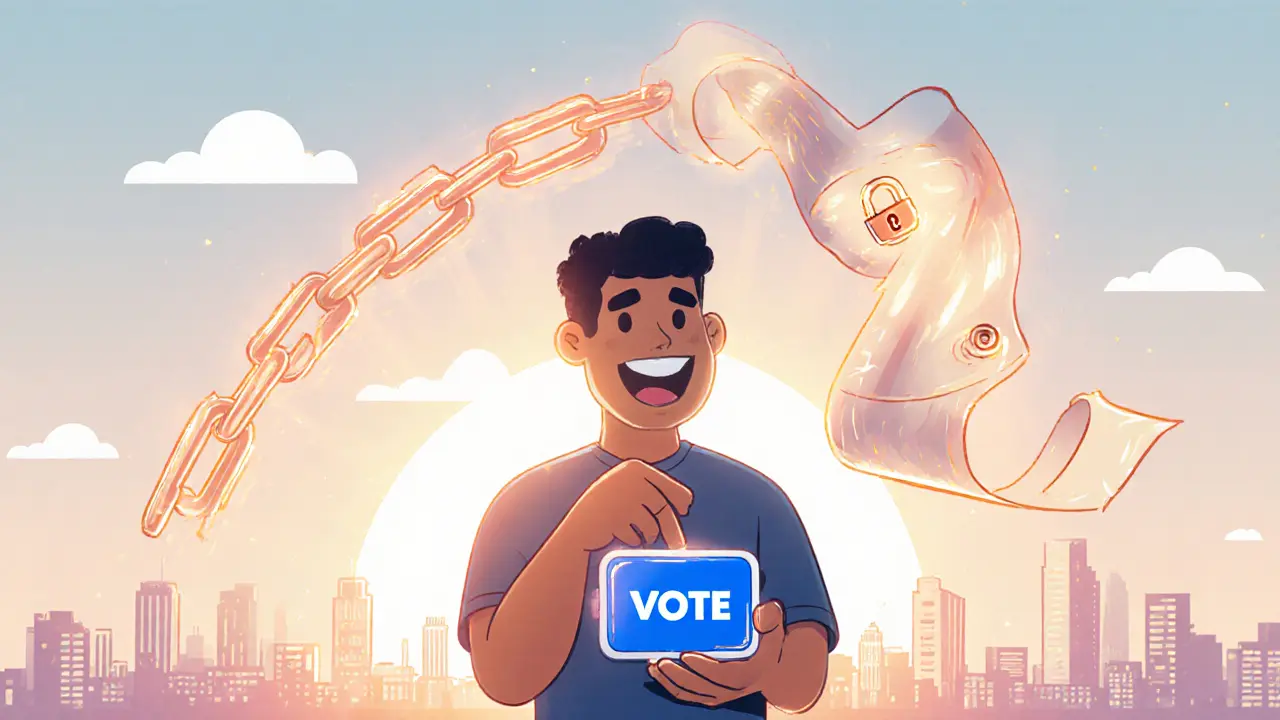Online Voting: How Crypto Powers Secure Digital Decisions
When working with Online Voting, the process of casting ballots over the internet using cryptographic methods to ensure security and transparency. Also known as e‑voting, it lets anyone with an internet connection participate in elections, governance polls, or community decisions without a physical ballot, you instantly get a system that’s fast, auditable, and hard to tamper with. Online voting combines web interfaces with blockchain proofs, meaning each vote gets a unique digital fingerprint that can’t be forged.
One of the biggest drivers behind this shift are Governance Tokens, cryptocurrency units that give holders the right to influence protocol rules and project direction. These tokens turn a simple wallet into a voting ballot, letting token owners propose changes, approve upgrades, or allocate funds. The more tokens you hold, the louder your voice—much like traditional shareholder voting but on a public ledger.
DAO Voting and the Bigger Picture of Blockchain Governance
When a community adopts a Decentralized Autonomous Organization, it relies on DAO Voting, a collective decision‑making process where members cast votes on proposals using smart contracts. DAO voting requires transparent proposal creation, encrypted voting, and automatic execution of approved actions. This creates a feedback loop: proposals shape token economics, token economics affect governance token distribution, and distribution determines future voting power.
These three entities link together in clear ways: online voting encompasses DAO voting; DAO voting uses governance tokens; governance tokens are secured by blockchain technology. Because of that, anyone building an e‑voting platform must consider cryptographic verification, token‑based weighting, and smart‑contract execution. The posts below cover everything from Malta’s crypto licensing rules that affect voting platforms, to step‑by‑step guides for claiming airdrops that often reward governance token holders, and deep dives into hash algorithms that keep vote data immutable.
Below you’ll find a curated set of articles that break down the technical, regulatory, and practical sides of digital voting. Whether you’re a developer, a token holder, or just curious about how blockchain can make elections fairer, the collection will give you actionable insights and real‑world examples.

